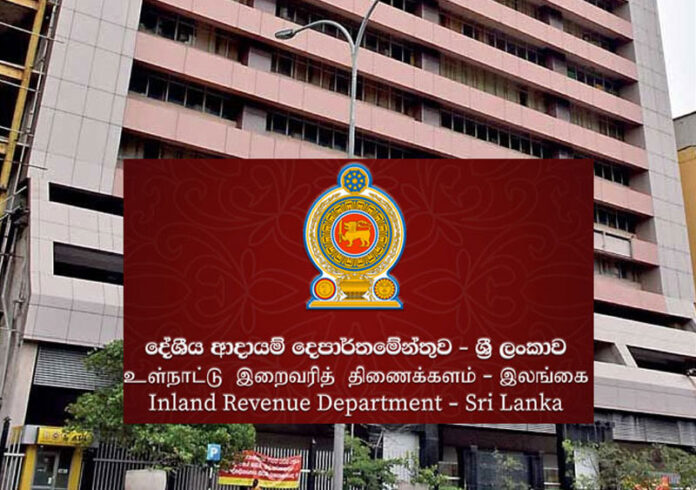By: Staff Writer
March 08, Colombo (LNW): The government has taken necessary policy measures to prevent corruption vulnerabilities occurring at points of interaction between Inland Revenue Department officials and the public, State Ministry of Finance sources divulged.
It has been observed that the tax amount in default as at 30.06.2023 is approximately Rs. 7.72 billion.
The IRD officials have said that only Rs. 175 billion out of Rs. 904 billion could be recovered, but no action has been taken by the department so far.
This is magnified when revenue officials exercise discretion without adequate safeguards with opportunities when assessing income or expenses, classifying goods and tax rates, or granting concessions.
Cumbersome procedures that are open to abuse, along with collusion between officials create strong incentives in an environment of few, if any, consequences for a taxpayer to offer and/or for a revenue official to solicit a bribe.
Such deals benefit the colluding corrupt parties at the expense of the government and wider society, a high official of the ministry said.
Revenue collection agencies internationally are renowned to be some of the most corruption-prone government institutions.
Countering this risk requires an explicit policy of high integrity and zero-tolerance to corruption supported by robust institutional arrangements to enforce and reinforce such a culture.
These characteristics are mostly absent in Sri Lanka; an observation confirmed by the business community and accounting profession.
Corruption vulnerabilities occur at points of interaction between revenue officials and the public.
The total number of personal tax files stood at 292,000 that was only 10 per cent of the eligible taxes paid through these files.
On the other hand there are 105,000 registered companies, but only 15 per cent of them are contributing to tax revenue.
Surprisingly, a significant 86 per cent of the government’s revenue is receiving from a mere 494 companies, Ministry data showed.
The target of IRD is in the process of opening up 1.2 million tax files whilst the target of tax files given by the Budget 2023 is 1.5 million.
However, IRD has not yet identified a mechanism to achieve the target of opening 1.2 million tax files which was set by the IRD itself. It has been revealed that it would take a number of years to fulfil this task.
This is magnified when revenue officials exercise discretion without adequate safeguards with opportunities when assessing income or expenses, classifying goods and tax rates, or granting concessions.
While this policy is justified by the specialised nature of revenue administration, it acts as a binding constraint that has led to very inward-looking institutions that are reluctant to change, particularly given strong union influences.
Furthermore, the revenue departments are hamstrung from building skills and expertise needed for the modern economy, with the Inland Revenue Department (IRD) unable to recruit specialist information technology staff and data analysts needed to move away from the corruption-prone embedded work practices.

